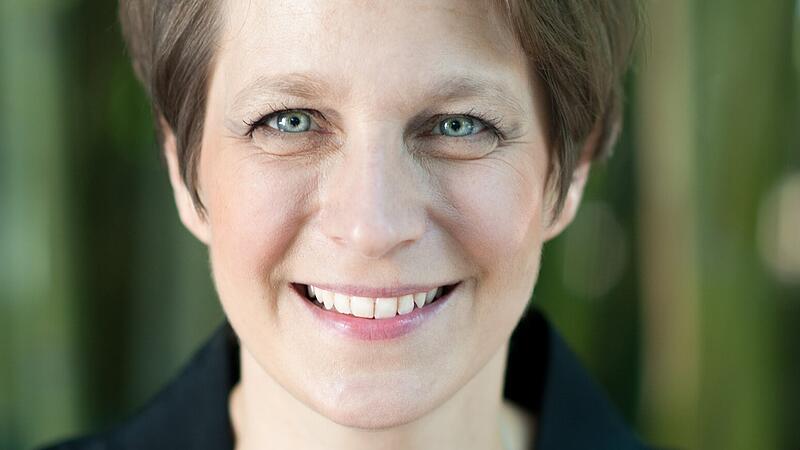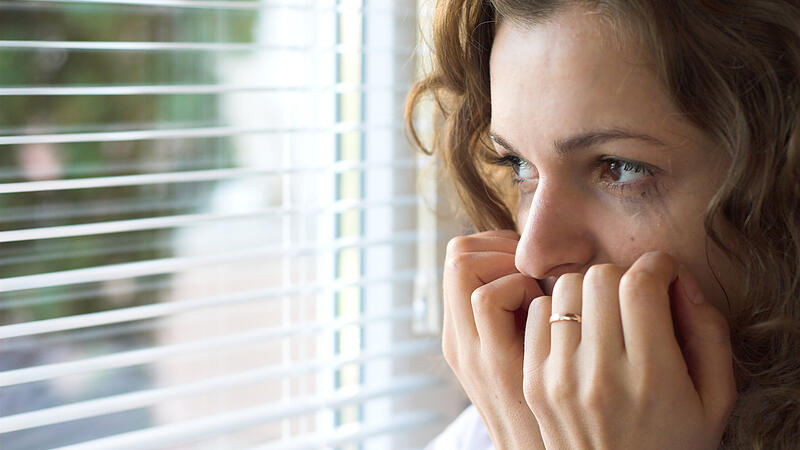Whether it’s the death of a loved one, the end of a relationship, the beginning of an illness: “There are hundreds of reasons for a crisis – and nobody is immune to it. On the contrary, everyone experiences sad phases in the course of their lives,” says Katharina Glück, head of the psychiatric department at the Wels-Grieskirchen Clinic. The doctor speaks on OÖN Women’s Day on March 4th – and in an interview – about how to not only master crises well, but also emerge stronger from them.
OÖN: Crises are terrible – everyone would like to avoid them …
Katharina Glück: Unfortunately, that doesn’t work. We all have difficult times in our lives. The only question is how we deal with them. Basically, a crisis is a situation that prompts us to move forward.
Can everyone do this?
Each of us has a more or less large toolbox to deal with a crisis – and this toolbox is called resilience. The term means something like psychological resilience. The more resilient I am, the more crisis-proof I am.
Do you have this resilience automatically?
No, and not everyone gets the same amount of it. Part is genetic, part is given to us and depends on how we were raised. If we had to endure fear of loss in childhood, our resistance is lower from the start. But resilience grows with every crisis that we have mastered well. Because we learn patterns of behavior and methods that help us through it. And we get the certainty that these strategies are working again. This trust will help us through further crises.
Can you improve your mental resilience?
Yes – by building a good social network with friends and family, because those who are well embedded do not feel alone. That is why it is so important to maintain contacts and treat each other with respect. You should also take good care of yourself and economize on your strength.
When do I need help?
If you feel like you’re stuck in a dead end, you’re despondent and weary of life: Then it’s high time to seek help – from friends, family – or even to consider therapy. Especially when you’ve slipped into depression and can’t find your way out on your own.
They say time heals all wounds, right?
A lot of things get easier over time, that’s true, of course – but you have to do something about it. It is very important to ensure that you remain able to act, even in a crisis. A dysfunctional, i.e. non-functioning way of coping with crises would be alcohol. It stuns, but doesn’t solve anything. On the contrary, you quickly have one more problem. Even social withdrawal does not get you anywhere.
And what brings you further?
Being active, even on dark days, still socializing, maybe learning a new hobby. There are so many possibilities. All of this will help you get your life back on track. This creates a positive spiral that pulls you back up.
“Even in dark hours see the good all around”
Barbara Pachl-Eberhart has probably experienced the worst that one can imagine. In 2008, the 47-year-old lost her husband and two children in a terrible car accident.
Still, she managed to keep going. “Back then, it helped me to look at what was good and positive in my life, even in the dark hours,” says the author, who also tells her story in the book “Four minus three” (Heyne Verlag).


Her personal tip: When you go through bad phases, it is better to divide the time into smaller units, for example not to look at the years of the pandemic, but maybe only every single day or an hour. And to consciously fill them with beautiful things. “Life is nothing more than the sum of many small moments in which we are sometimes worse off, sometimes better. It is important that we realize when we are happy.”
“I am grateful every day that I am doing well”
Her corona disease in February 2021, including her stay in the intensive care unit, left a lasting impression on Karin Janisch from Perg – in a positive way, as the fitness trainer says. “Today I’m grateful every day that I’m doing so well.” She feels more relaxed than before and tries to “only see the positive things”. Since then, the meaning of many things has changed, as the 47-year-old says: “I try not to chase after the superficial anymore.”


What helped her during this time? For one thing, mental strength. “You have to be very strong in your head and say to your body, ‘You can do this'”. Breathing meditation has also helped her to find inner peace in the intensive care unit and physical training to quickly regain her fitness. On the other hand, later on, talking to like-minded people and spending time in nature would have helped to process the experience.
“Had to learn to feel my feelings”
It began in 2012, when the family life of Angela Pointner and her husband, the ex-ski jumper Alexander Pointner, who was born in Grieskirch, brought more and more misfortunes with them. First the eldest son and the father of the family suffered from depression, later also daughter Nina and now also Paula. Nina finally attempted suicide in 2014, then fell into a coma and died a year later. “My body was on constant alert for a year,” Pointner says today. “But I didn’t feel how high my tension was permanently.”


The 50-year-old, who now works as a regeneration coach, sought therapeutic help. And as a result, she learned to “feel and allow all my feelings, including anger and sadness,” she says. “It made the anger go away. And that made her love for Nina and for life as a whole stronger again.” She and her husband also wrote a book about it (“Mut zum Absprung”, Seifert Verlag).
OÖN Women’s Day, Friday, March 4th, in the Promenaden Galerien
- 09.30 am: Welcome with Susanne Dickstein (OÖN editor-in-chief), Christine Haberlander (LH deputy), Michael Strugl (CEO Verbund)
- 10 a.m. to 11 a.m.: “What’s old age?” with Birgit Fenderl (ORF presenter), Andrea Oßberger (plastic surgeon), Gerda Rogers (astrologer), Milva Spina (model)
- 11.15 a.m. to 11.45 a.m.: Styling campaign “The woman in gray”
- 12 to 12.45 p.m.: Conversation with Erika Pluhar
- 1pm to 1.45pm: “Look at you!” with Monika Aichberger (Upper Austria Chamber of Pharmacists), Elisabeth Brautigam (Order Hospital), Gudrun Piringer (University Hospital), Maria Sauer (Upper Austria Cancer Aid)
- 2pm to 2.45pm: Discussion on the topic of femicide with Anna Maria Dieplinger (expert for gender medicine), Christine Haberlander (VP), Eva Maria Holzleitner (SP), Beate Meinl-Reisinger (Neos)
- 3pm to 3.45pm: “Strengthened by crises” with Katharina Glück (psychiatrist), Karin Janisch (fitness trainer), Barbara Pachl-Eberhart (teacher), Angela Pointner (regeneration coach)
- 4 p.m. to 4.45 p.m.: “Women as jokers in industry” with Ilse Burgstaller (MD RZL Software), Lisa Csenar (Head of Project Development Verbund Green Power), Therese Niss (initiator MINTality) and Elisabeth Punzhuber (MD shareholder Hill International)
- 17 o’clock: Cabaret artist Monica Weinzettl
Participation: Remaining places will be allocated on site. So it’s worth stopping by. All information on nachrichten.at/frauenzeit. In addition, 2G proof and masks are mandatory.
Source: Nachrichten




